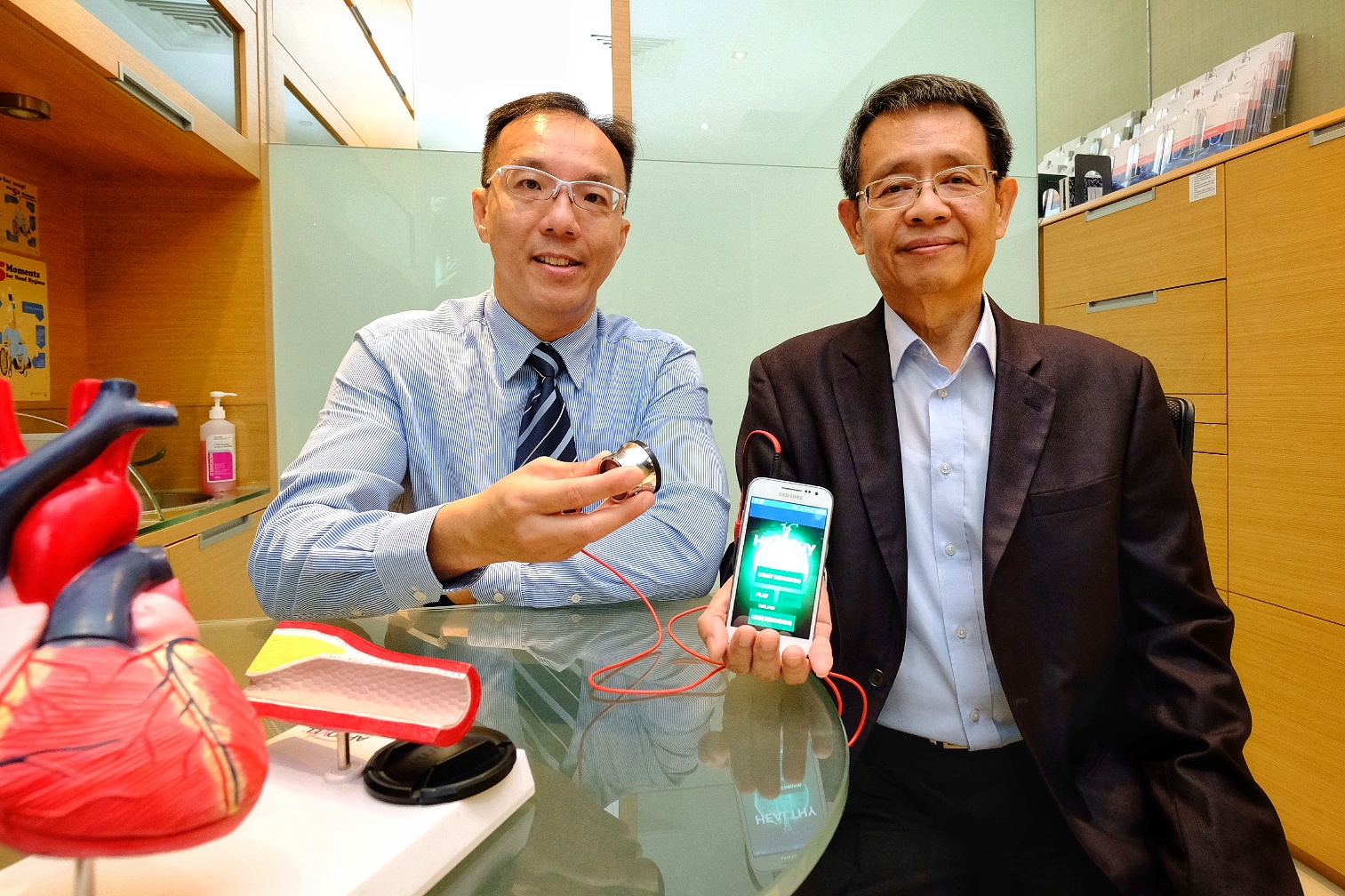One in five people worldwide run the risk of developing congestive heart failure – and the prevalence increases with age.
A team of researchers from Nanyang Technological University, Singapore (NTU Singapore) and Tan Tock Seng Hospital (TTSH) have invented a smart handheld medical device that could enable early intervention for patients with congestive heart failure.
The portable innovation is made up of an acoustic sensor connected to a smartphone, NTU said in a press statement.
The device resembles a stethoscope, and allows patients to check for excess fluid in the lungs at home. Fluid accumulation in the lungs, which causes breathlessness, is a common symptom of congestive heart failure.
The smart medical device first picks up breathing sounds through a sound sensor. Through a mobile app, the sound signals are then sent to a server located in the cloud. The NTU-developed algorithm stored in the cloud then processes these sound signals, and the results are shown on the mobile app. This whole process takes about 10 seconds to complete.
Currently, patients can only check for fluid accumulation in the lungs by going for a clinical examination, which can be considerably subjective. Another way is through imaging modalities and serum biomarker tests, which are costly and take a longer time.
The non-invasive device built by the research team circumvents these problems with its portability, ease of use and quick results. Currently a prototype, the device is able to detect any excess fluid in the lungs in 10 seconds once placed on the patient’s chest or back.
“Patients can monitor their condition at home and use the device whenever they feel slightly breathless at home,” said Associate Professor Foo, Head of Cardiology at TTSH, who co-led the research. “It is potentially a game-changer in the management of ambulatory heart failure patients. It can also provide a rapid and accurate acute diagnosis of heart failure in situations of undifferentiated shortness of breath symptoms.”
Associate Professor Ser from NTU’s School of Electrical and Electronic Engineering, added, “Our smart medical device can be used by anyone, anywhere and any number of times, which will enable the possibility of early intervention of congestive heart failure.”

